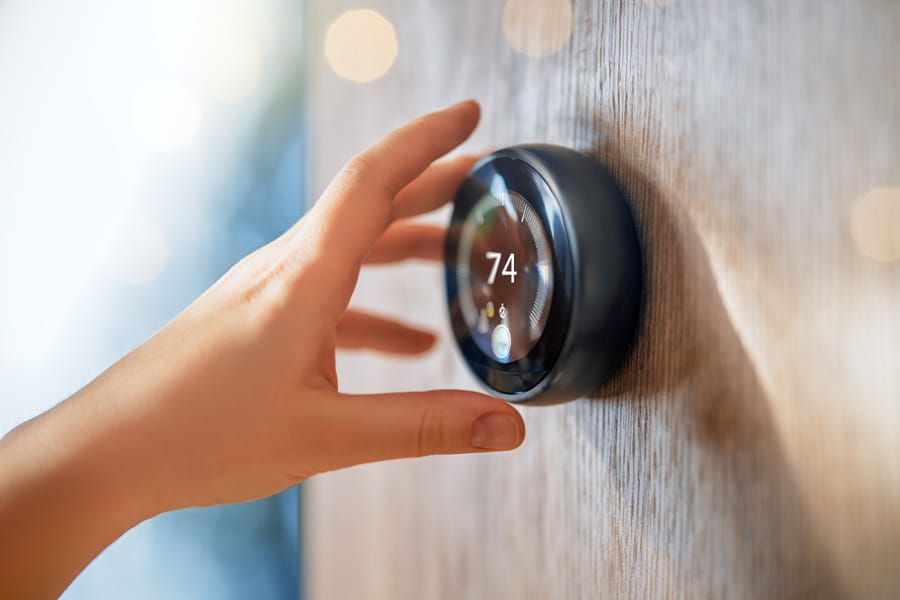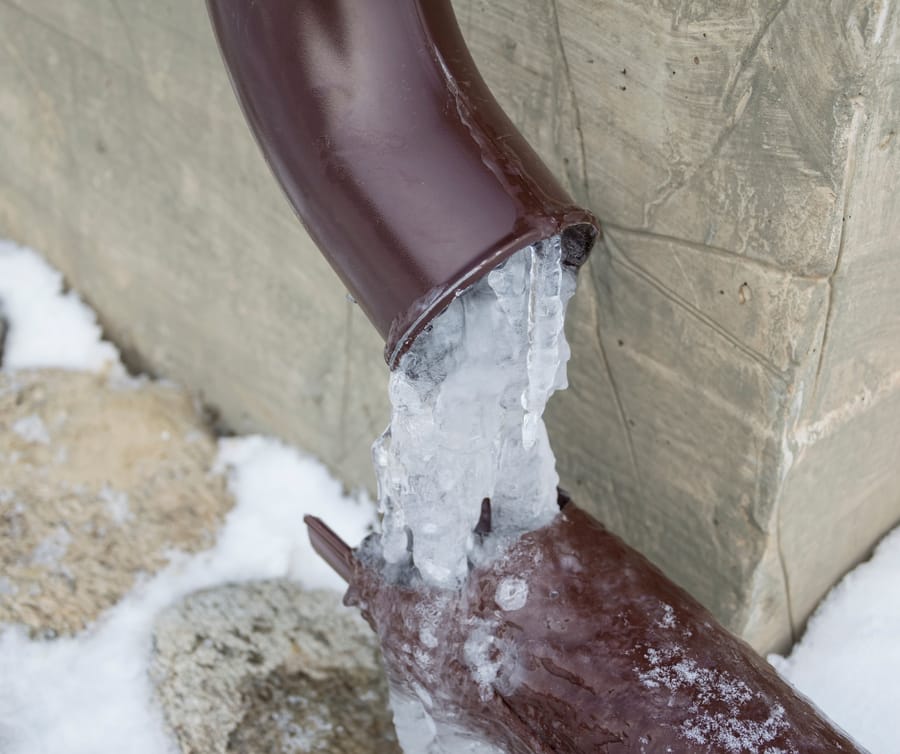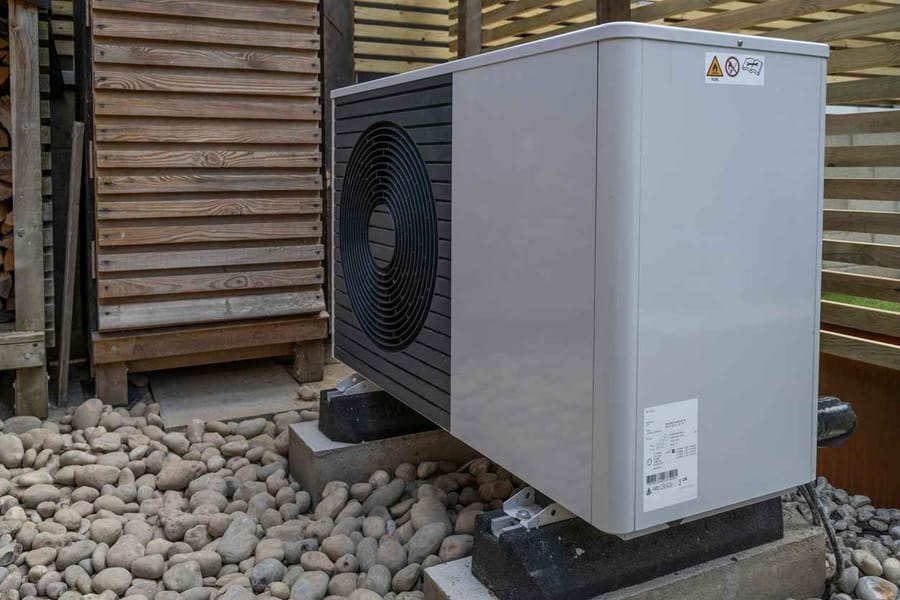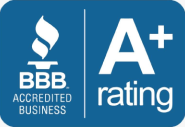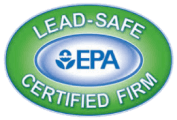Hard Water in the Roanoke Valley: What It’s Doing to Your Pipes and Water Heater
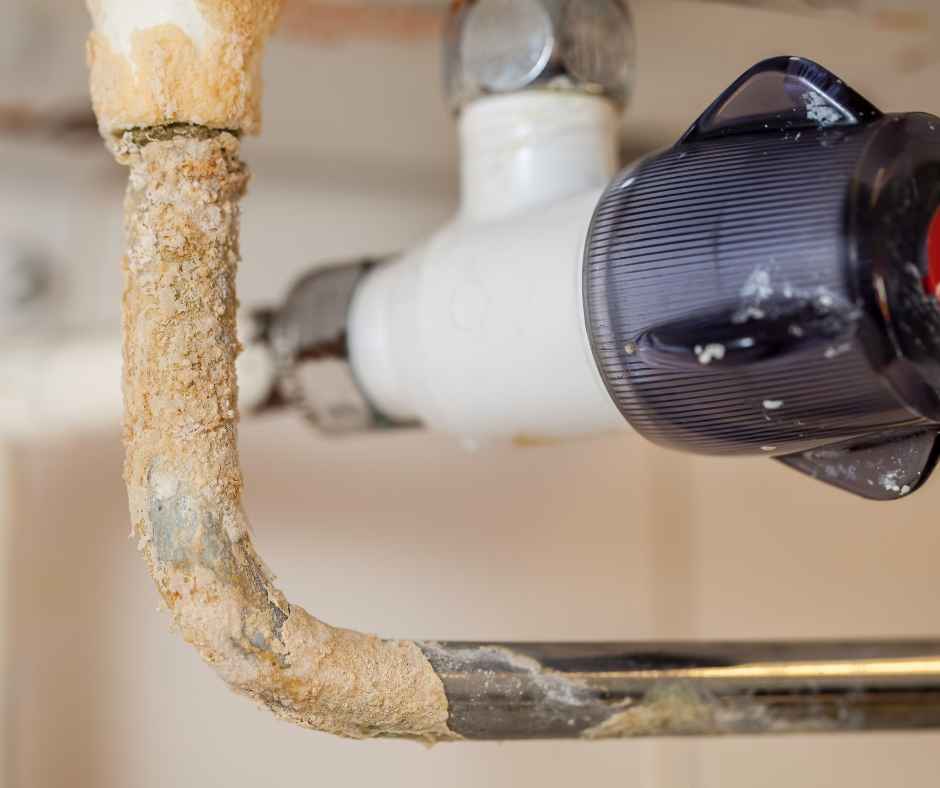
If you live in the Roanoke Valley, you’ve probably seen the signs of hard water: cloudy spots on glasses, chalky buildup on faucets, and soap that never seems to lather well. Hard water contains extra calcium and magnesium minerals, which come from the area’s limestone-rich soil and groundwater.
These minerals are harmless to drink but tough on your plumbing and appliances. As water travels through pipes, it leaves behind mineral deposits that restrict water flow, lower efficiency, and wear out fixtures. Over time, this buildup can shorten the life of your water heater and increase your energy bills.
Hard water is a fact of life across much of Roanoke and nearby communities like Salem and Vinton, but homeowners can take steps to protect their systems. Understanding what causes hard water and how to treat it is the first step to keeping your home’s plumbing in good shape.
What Makes Water “Hard”?
Hard water forms when groundwater absorbs minerals as it flows through limestone and other rock layers. In the Roanoke Valley, this process happens naturally because the region’s soil and bedrock contain high levels of calcium and magnesium. When these minerals dissolve into the water supply, they increase its “hardness.”
The level of hardness is measured in grains per gallon (gpg) or milligrams per liter (mg/L). Most water in the Roanoke area falls in the moderately hard to hard range, meaning it has enough mineral content to cause buildup over time. While city water treatment facilities filter and disinfect water to make it safe to drink, they do not remove these dissolved minerals.
If you’re unsure about your home’s water hardness, a simple test can give you answers. Home testing kits are available, but a professional plumber can perform a more accurate analysis. Knowing your water’s mineral level helps determine whether you need a water softener or filtration system.
Common Signs You Have Hard Water in Your Roanoke Home
Even without a test kit, hard water leaves plenty of clues around your home. If you live in Roanoke, Salem, or nearby communities, you’ve likely noticed at least one of these common signs:
- White buildup on faucets and showerheads: Hard water leaves mineral deposits that look like chalky white spots or crust.
- Soap that doesn’t lather well: Calcium and magnesium interfere with soap and detergent, creating a film instead of bubbles.
- Dry skin and dull hair: Mineral residue can leave skin feeling tight and hair looking flat or rough.
- Spots on dishes and glassware: Hard water leaves a cloudy film that is difficult to rinse away.
- Reduced water pressure: Scale buildup inside pipes slowly restricts flow, making showers feel weaker over time.
If several of these issues sound familiar, there’s a good chance your home has hard water. While the effects start small, they can quickly add up to bigger plumbing and appliance problems if left untreated.
The Hidden Cost: How Hard Water Damages Pipes
Hard water might seem like a minor annoyance at first, but the long-term impact on your plumbing system can be costly. As calcium and magnesium build up inside your pipes, they form a hard, crusty layer called scale. This buildup slowly narrows the diameter of the pipes, reducing water flow and creating pressure imbalances.
Restricted flow means your plumbing has to work harder to deliver water to faucets, showers, and appliances. Over time, that extra strain can lead to leaks, clogs, and even burst pipes in older homes. The mineral coating can also corrode metal components, shortening the life of your plumbing system.
You might notice warning signs like lower water pressure or discolored water, but most damage happens out of sight. That’s why many homeowners in the Roanoke Valley schedule annual plumbing inspections to catch mineral buildup before it becomes a major problem. Preventing hard water damage early is far less expensive than replacing pipes later.
How Hard Water Wears Out Your Water Heater
Your water heater works harder than almost any appliance in your home, and hard water makes that job even tougher. As mineral-heavy water heats up, calcium and magnesium separate and settle at the bottom of the tank. Over time, this sediment layer builds up, forming a barrier between the heating element and the water.
That barrier forces the heater to use more energy to reach the same temperature, which drives up utility costs and strains the system. In gas models, sediment can cause popping or rumbling noises as trapped air bubbles try to escape through the buildup. Electric models may develop scale on heating elements, reducing efficiency and leading to early failure.
If left untreated, the problem worsens each year. Sediment not only shortens the lifespan of the water heater but can also cause uneven heating and discolored water. For many Roanoke homeowners, regular water heater maintenance and flushing the tank once a year can make a major difference. Pairing that with a water softener helps prevent scale from forming in the first place, protecting your investment and lowering monthly energy bills.
Solutions: How to Protect Your Home from Hard Water Damage
Hard water may be common across the Roanoke Valley, but it’s not something homeowners have to live with. There are several effective ways to protect your plumbing system, appliances, and water heater from mineral buildup.
- Schedule regular plumbing inspections. A professional plumber can spot early signs of mineral accumulation before they cause serious problems. Annual inspections are especially helpful for older homes or those with well water.
- Install a water softener or treatment system. Water softeners replace calcium and magnesium with sodium or potassium ions, preventing scale from forming inside pipes and appliances. Depending on your home’s needs, a whole-home filtration system can also improve water taste and reduce sediment.
- Flush your water heater yearly. Draining and rinsing the tank removes sediment that settles at the bottom. This simple maintenance step improves energy efficiency and extends the life of the heater.
- Use cleaning products designed for hard water. Vinegar-based or mineral-fighting cleaners help dissolve buildup on faucets, showerheads, and glass surfaces.
Combining these steps keeps your plumbing system in better condition and reduces costly repairs. Homeowners in Roanoke often notice immediate improvements in water pressure, appliance performance, and even how soap feels on their skin after installing a proper water treatment solution.
Benefits of Softened or Treated Water
Installing a water softener or treatment system does more than protect your plumbing. It can noticeably improve your home’s comfort, efficiency, and even your monthly expenses. Once hard water minerals are removed or neutralized, you’ll start to see the difference almost right away.
Key benefits of softened water include:
- Cleaner dishes and glassware: No more cloudy film or stubborn water spots.
- Softer skin and hair: Without mineral residue, skin feels smoother and hair retains more shine.
- Longer-lasting appliances: Water heaters, dishwashers, and washing machines operate more efficiently and last longer without scale buildup.
- Lower energy bills: With less sediment and scale, your water heater and plumbing system don’t have to work as hard to deliver hot water.
- Less soap and detergent waste: Soft water allows soap to lather better, meaning you use less product and save money.
For many homeowners in the Roanoke Valley, treating hard water also creates a noticeable improvement in water quality throughout the home. Everything feels cleaner, operates better, and costs less to maintain.
Why Roanoke Homeowners Trust Ostrom Electrical Plumbing Heating & Air
When it comes to protecting your home from hard water, experience matters. Ostrom Electrical Plumbing Heating & Air has been serving the Roanoke Valley for decades, helping homeowners solve water quality and plumbing problems quickly and professionally. The team understands the area’s water conditions, from mineral-heavy well systems in Botetourt County to municipal water supplies throughout Roanoke and Salem.
Ostrom’s certified plumbers provide expert diagnostics, honest recommendations, and long-term solutions that fit your home’s needs. Whether you need a water softener installation, a water heater flush, or a full plumbing inspection, their technicians make the process simple and stress-free.
Local families trust Ostrom because of the company’s reputation for reliability and quality service. By combining professional expertise with a customer-first approach, they help Roanoke homeowners enjoy cleaner, more efficient water systems and peace of mind year-round.
Stop Hard Water Damage Before It Starts in Roanoke
Hard water may seem like a small nuisance, but over time, it can create serious problems inside your home. From scale buildup that clogs pipes to sediment that wears out your water heater, the damage adds up quietly until repairs become expensive.
Fortunately, Roanoke homeowners don’t have to wait for that to happen. By testing your water, scheduling regular plumbing maintenance, and installing a water softener or treatment system, you can protect your plumbing, lower your energy costs, and enjoy better-quality water throughout your home.
If you suspect hard water is affecting your pipes or water heater, the experts at Ostrom Electrical Plumbing Heating & Air are ready to help. With trusted local service and proven solutions, they can keep your water systems running efficiently and your home protected for years to come.
Frequently Asked Questions About Hard Water and Plumbing in the Roanoke Valley
How often should I test my home’s water hardness?
It’s a good idea to test your water at least once a year, especially if you’ve noticed changes in water pressure, buildup, or taste. Annual testing helps you monitor mineral levels and decide when maintenance or treatment adjustments are needed.
Can hard water affect my laundry or clothing?
Yes. Hard water prevents detergent from rinsing out completely, which can leave clothes feeling stiff or looking dull. Over time, it can even cause fading or fabric damage. A water softener helps clothes stay cleaner and last longer.
Is hard water worse for certain types of pipes?
Metal pipes, especially galvanized steel, are more prone to mineral buildup and corrosion from hard water. While PVC or PEX pipes resist scale better, the appliances connected to them, like water heaters, are still affected.
Does boiling water remove hardness minerals?
Boiling can remove temporary hardness caused by calcium bicarbonate but not permanent hardness from calcium sulfate or magnesium. A water softener or filtration system is the only reliable long-term solution for Roanoke homes.
Are there eco-friendly ways to treat hard water?
Yes. Modern water treatment systems often use salt-free conditioning or magnetic technology to reduce scale buildup without adding chemicals. These systems are a great choice for households looking for environmentally conscious water solutions.


